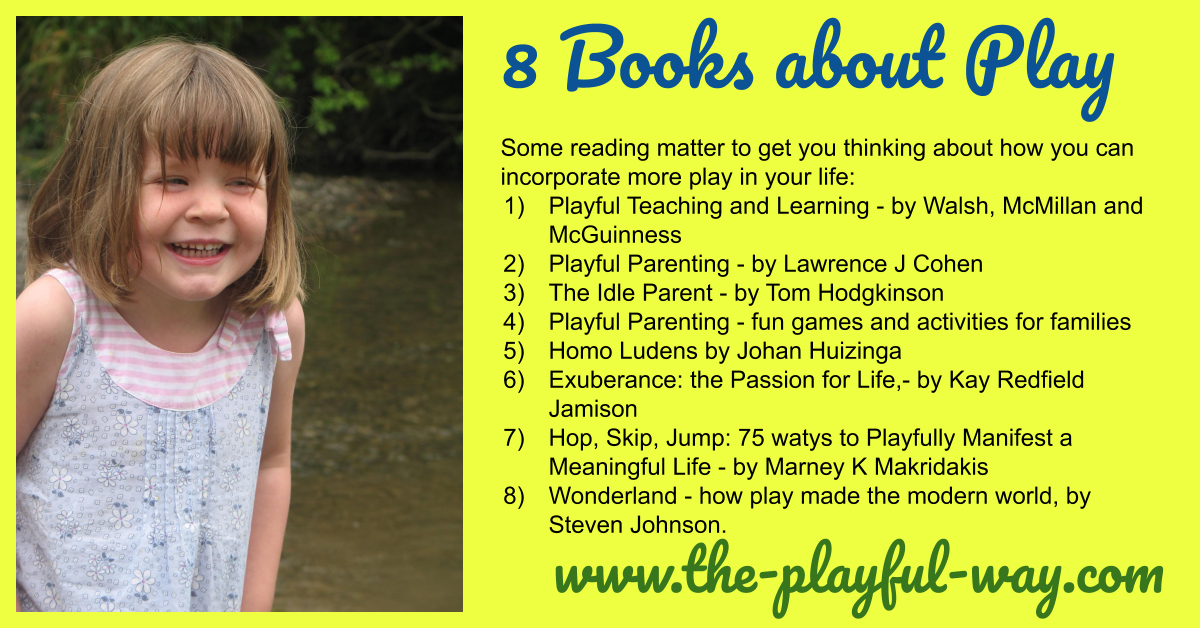
If you’re reading this blog, this suggests that you believe in the power of play to make the world a better place, to develop children and adults into happier and more productive people.
This isn’t a new concept and some eminent authors, psychologists, philosophers and educators have written books about the importance of play. They are a great place to get ideas on how to incorporate more play in your teaching, in your parenting or in your life in general, as well as to find evidence to convince any sceptics out there.
In the interests of transparency, please note that some of the links in this post are affiliate links. This means that, with no additional cost to you, I will earn a small commission if you decide to make a purchase after clicking through the link. I will only recommend products that I believe are worth buying, not because of the links – they are just a helpful way for me to earn a little extra cash.
“Playful Teaching and Learning” 2017 – by Glenda Walsh, Dorothy McMillan and Carol McGuinness
This textbook for early years practitioners explores how important play is throughout the early years setting, focusing on ages 3-8. Playfulness can and should be applied to all aspects of the early-years curriculum to captivate and maintain the interest of young children in their setting.
Available in paperback and in Kindle
“Playful Parenting” – by Lawrence J Cohen
Lawrence Cohen is a celebrated psychologist and he describes this book as “An exciting new approach to raising children that will help you: nurture close connections, solve behavior problems and encourage confidence.” He points out that by playing with our children we join them in their world.
Available in Paperback and Kindle edition
The Idle Parent – by Tom Hodgkinson
I adore this book, and I think it’s probably what got me started on the realm of the Playful Manifesto.
Tom’s key suggestion is that children do a lot better when they aren’t being constantly coddled and carted from place to place. When they have freedom to just… play, which frees up you, the parent to stop nagging them and join in with the play.
Available in paperback and on Kindle
“Playful Parenting – Fun Games and Activities for Families” – by Judy H Wright
This fabulous book from parent educator, Judy Helm Wright (Auntie Artichoke), has lots of practical ideas to bring a more playful approach to your family.
Available on Kindle
“Homo Ludens” by Johan Huizinga
In this famous study of play across many cultures, Johan Huizinga defines play as a central feature of all flourishing societies. He talks about play in terms of law, language, poetry and myth and describes (starting with Plato) how play has defined the contribution of Man.
Available as paperbackand Kindle
Exuberance: The Passion for Life – by Kay Redfield Jamison
A Clinical Psychologist, Kay Redfield Jamison makes the link between child’s play and scientific breakthrough and talks about how this playfulness, which she describes as “exuberance” is critical in developing learning, social cohesiveness and survival.
Available on Kindle:
“Hop, Skip, Jump: 75 Ways to Playfully Manifest a Meaningful Life” by Marney K. Makridakis
Marney Makridakis explains how work and play can be blended to bring you happy success. She suggests three phases: dreaming (hop), experimenting (skip) and taking action (jump) and describes how we can discover our “play personality” to make work feel more like play.
Available in Paperback or Kindle Edition
“Wonderland – how play made the modern world” Steven Johnson
In this book, Steven Johnson explains how playful creativity is the mother of invention and led to the development of a host of products and devices that we just couldn’t do without. From flutes made of bone to computers and the internet. Never dull, he gives practical reasons to back up the concept that we need play to develop new ideas.
Available in hardback:
And kindle edition:



hd film izle says:
I like this internet site because so much useful material on here :D. Deloris Brent McCarty
hd film izle says:
I was able to find good information from your content. Joleen Shermie Wileen